'Do You Have Space?': Searching For Day Care In Del Valle
On a muggy Texas afternoon, Leesa Rodriguez is encouraging a group of kids to get messy. They’re at her home day care, The Joyful Child, where Rodriguez’s hands-on learning style is being put to use in sand boxes. The children build castles and race tracks, but also learn to ask nicely and help friends.
“A lot of our learning is outside,” says Rodriguez. “I feel like if it’s not in their hands, then it can’t be in your mind.”
Rodriguez is no stranger to the child care industry. She’s worked for day care facilities, the local school district, and now herself. Currently she operates a licensed child care home, meaning she can monitor 12 children total at her residence. But the demand for child care in Del Valle far outstrips the supply.
Leesa Rodriguez helps a group of children with sand boxes. She encourages a hands-on method to play and learn. “I feel like if it’s not in their hands, then it can’t be in your mind,” Rodriguez says. Photo by Blair Waltman-Alexin.
U.S. Census data estimates over 2,000 children under the age of 5 live in the 78617 zip code area known as Del Valle, making up about 8% of the overall population. But there are not nearly enough slots at licensed child care centers to meet the demand. A search on the Texas Health and Human Services website currently shows only three licensed child care locations in Del Valle. That shortage has only been exacerbated by the pandemic, which has forced some places to close.
The Joyful Child is one of the few places that remains open.
“[Families] ask me, ... ‘Can you watch? Do you have space?’” says Rodriguez. “And unfortunately I've had to say no. And that's where my heart strings are pulled because there’s that need.”
Del Valle is classified as a child care desert, which means there are three times as many children as there are slots at licensed facilities. At best, Del Valle and the surrounding areas have 25 seats per every 100 children. At worst, there are zero.
Leesa Rodriguez watches Gwyneth Bearden(left) and Jaylen Smith (center) while pushing Joel Sandlin (right) on a swingset. As a licensed home day care facility, Rodriguez can only watch 12 children total. Photo by Blair Waltman-Alexin.
Children at Risk, a Texas-based nonprofit that studies child poverty and inequality, has mapped child care deserts across the state since 2017. Kim Kofron is their director of early childhood Education and says that child care deserts tend to appear in rural areas.
“Del Valle is a good example of that,” Kofron says. “You’re just on the outskirt of Austin, but it’s still somewhat of a rural area that really has low capacity for child care.”
Areas with higher Black and Latino populations are also more likely to also be child care deserts, according to a report from The Center for American Progress. About 85% of Del Valle identifies as Black or Latino.
Amani Harows rides a bike in front of Leesa Rodriguez’s home. Experts say that roughly 25% of day care facilities across the state have closed due to the pandemic. Photo by Blair Waltman-Alexin.
Kelsey Sandlin knows the challenges of searching for child care, and has one piece of advice for families:
“Just good luck, keep trying,” she says.
Sandlin says their search for child care began almost as soon as they found out she was pregnant. After applying to seven centers strewn across Austin, she was able to secure a space at one day care. When the pandemic hit, they opted to keep their son, Joel, at home, but once they started looking for child care again, the Sandlins were back at square one.
“There really isn’t a day care in the area,” Sandlin says.
When she came across The Joyful Child, she didn’t hold out a lot of hope they would be able to secure a space.
“I was like, ‘Can I get on the waitlist? How long is it?’” says Sandlin. “It just worked out that she had an opening. We got lucky.”
Sandlin says that before they landed a space at Rodriguez’s home, they had looked into locations in Bastrop and Austin. For families who do secure child care further afield, they must factor travel time and expenses on top of child care fees that can already be a strain on families.
“In the Austin area it’s between $10,000 and $15,000 a year for child care,” says Kofron. “The average wage workforce is making just over $10 an hour ... so even though parents can't pay any more, we're still not really at that level that they need for support either.”
Gwyneth Bearden laughs at Leesa Rodriguez while she tells a story. Del Valle is classified as a child care desert, meaning there are three times as many children as there are slots at licensed facilities. Photo by Blair Waltman-Alexin.
Rodriguez encourages families that come to her to check with the Texas Workforce Commission to see if they qualify for subsidized child care, though she says it can be a double-edged sword.
“The thing with subsidized care is that a lot of people don't want to accept them or they limit their centers,” Rodriguez says. For her part, Rodriguez aims to keep her day care affordable for families in the area.
“They're young families getting started for the most part,” says Rodriguez “I don't want to make child care a hindrance.”
Things become even more complicated if a child has developmental issues. While the Americans With Disabilities Act ensures that day care facilities can’t turn away a child because they have a disability, finding the right location that understands a child’s specific needs can be difficult for families, especially when the options are already limited. It’s part of the reason Rodriguez opened The JoyFul Child–she saw a need in the area for inclusive care.
“My goal was to be here and to help families get connected to resources,” Rodriguez says. “And I have been able to do that.”
But exacerbating all the usual complications is the pandemic. As Covid-19 forced schools across the country to shutter their doors temporarily, many day care centers followed suit. But unlike schools, many child care centers did not reopen as restrictions loosened.
“We've lost 25% of the programs across the state,” Kofron says.
Rodriguez has noted the dropoff in facilities and licensed homes in the area. She says before the pandemic hit, she was in touch with the operator of another home facility. But when she reached out to refer a family Rodriguez couldn’t take on, she discovered they had closed.
“I don't know if Covid had a factor, or she made the choice to close,” Rodriguez says. “But the only ones that I know of on this side of Del Valle is just myself and one other registered home.”
This adds extra challenges for families returning to work, especially women. A report from the Kaiser Family Foundation showed that half of mothers polled said they quit their jobs during the pandemic because a school or day care closed. These challenges have fallen predominantly on women of color, who were already more likely to reside in a child care desert.
“I think the larger piece of that is, what does that do for a community?”Kofron says “We can't build an economy without knowing who's taking care of the children.”
Some relief may be on the way in the form of the American Rescue Plan. The funding bill passed by Congress earlier this spring allocates funds towards bolstering child care services. But Kofron says the initial funding plans are aimed at reopening facilities, not starting new ones. There are opportunities to use some of the funds to open up new facilities in high-need areas, but she says it will require creative thinking at several levels.
Krystal Hernandez picks up her son Brian Castano from The Joyful Child. Rodriguez sees a need for more child care options in Del Valle. “I'm allowed to have 12 children ... there’s more than 12 families out here.” Photo by Blair Waltman-Alexin.
“Texas doesn't get any state dollars into their child care system. It's all based on what we get from the feds,” Kofron says. “If you really want to fix child care ... we really have to rethink how we fund child care and how we finance child care at the federal level and at the state level.”
In the meantime, Rodriguez is focused on helping families navigate their local child care desert. She’s in touch with other homes and facilities, keeping tabs on other places that might have open spots. And she’s doing what she can to provide top-notch care, by hiring an assistant and looking into improving her Texas Rising Star ratings and certifications. Still, she would like to see other providers open up in the area.
“I'm allowed to have 12 children based on the ratios,” Rodriguez says. “There’s more than 12 families out here.”
Community journalism doesn’t happen without community support.
Got story ideas, advice on how we can improve our reporting or just want to know more about what we do? Reach out to us at news@klru.org.
And if you value this type of reporting, then please consider making a donation to Austin PBS. Your gift makes the quality journalism done by the Decibel team possible. Thank you for your contribution.
More in Politics:
See all Politics posts
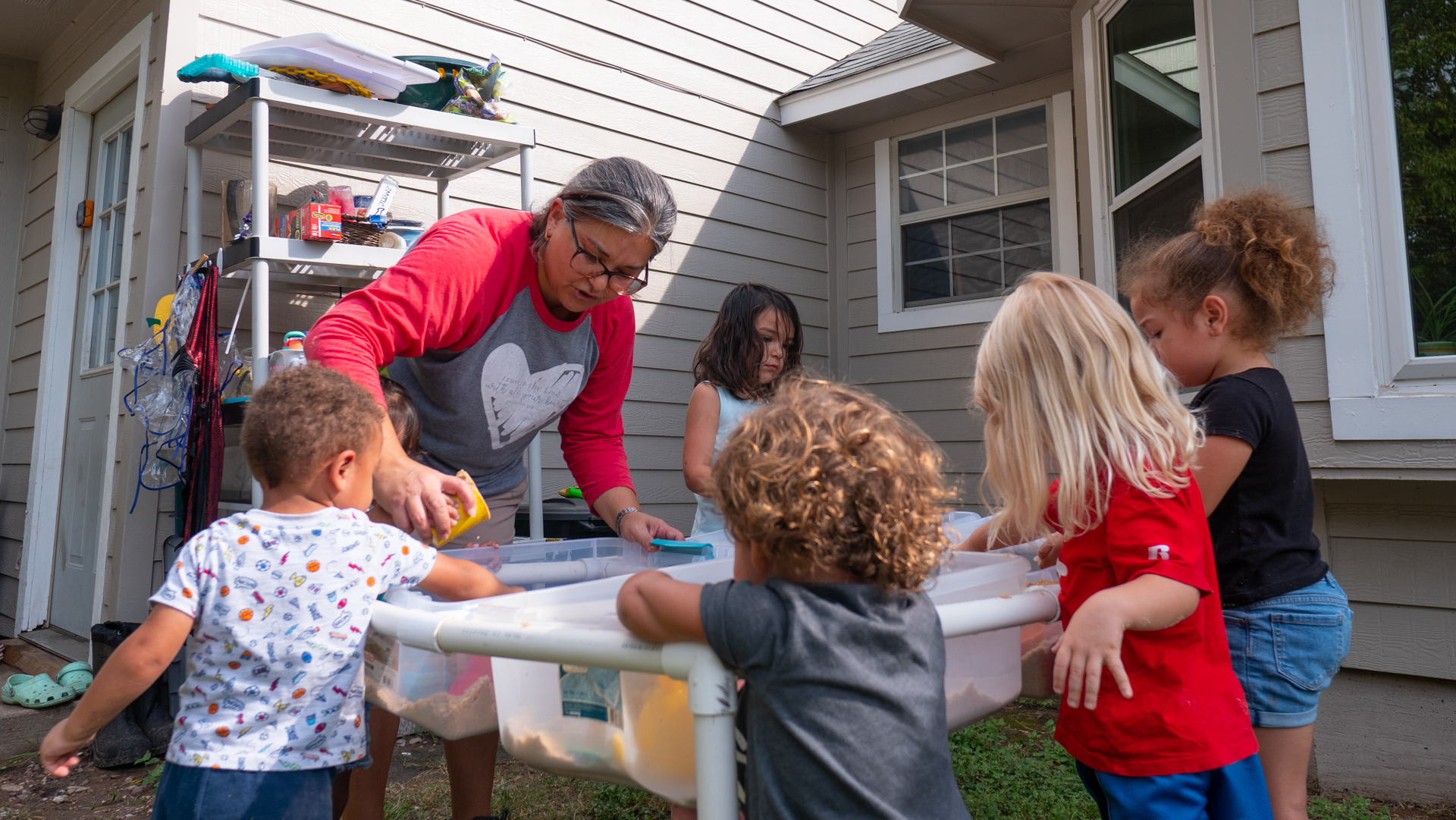
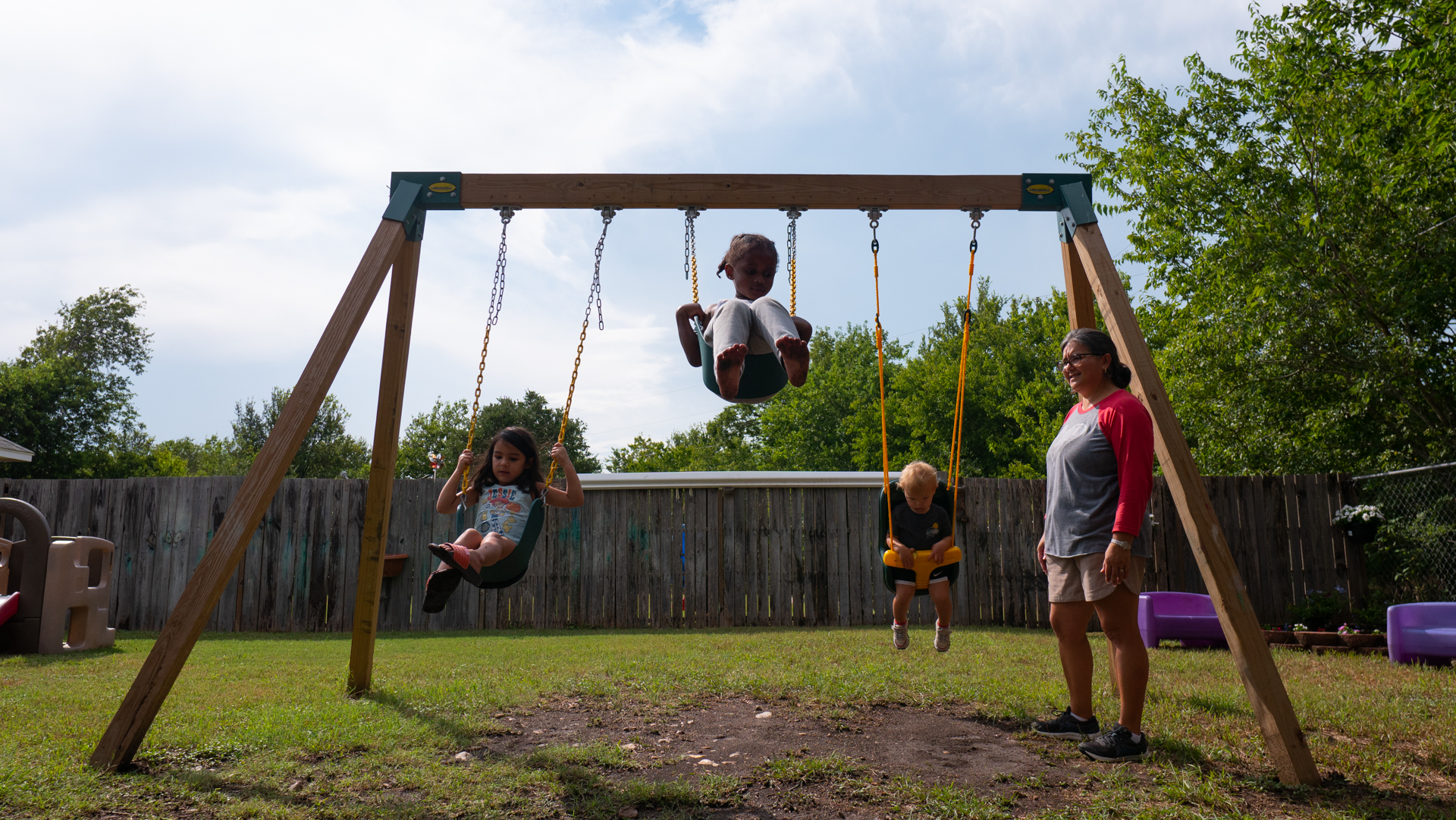
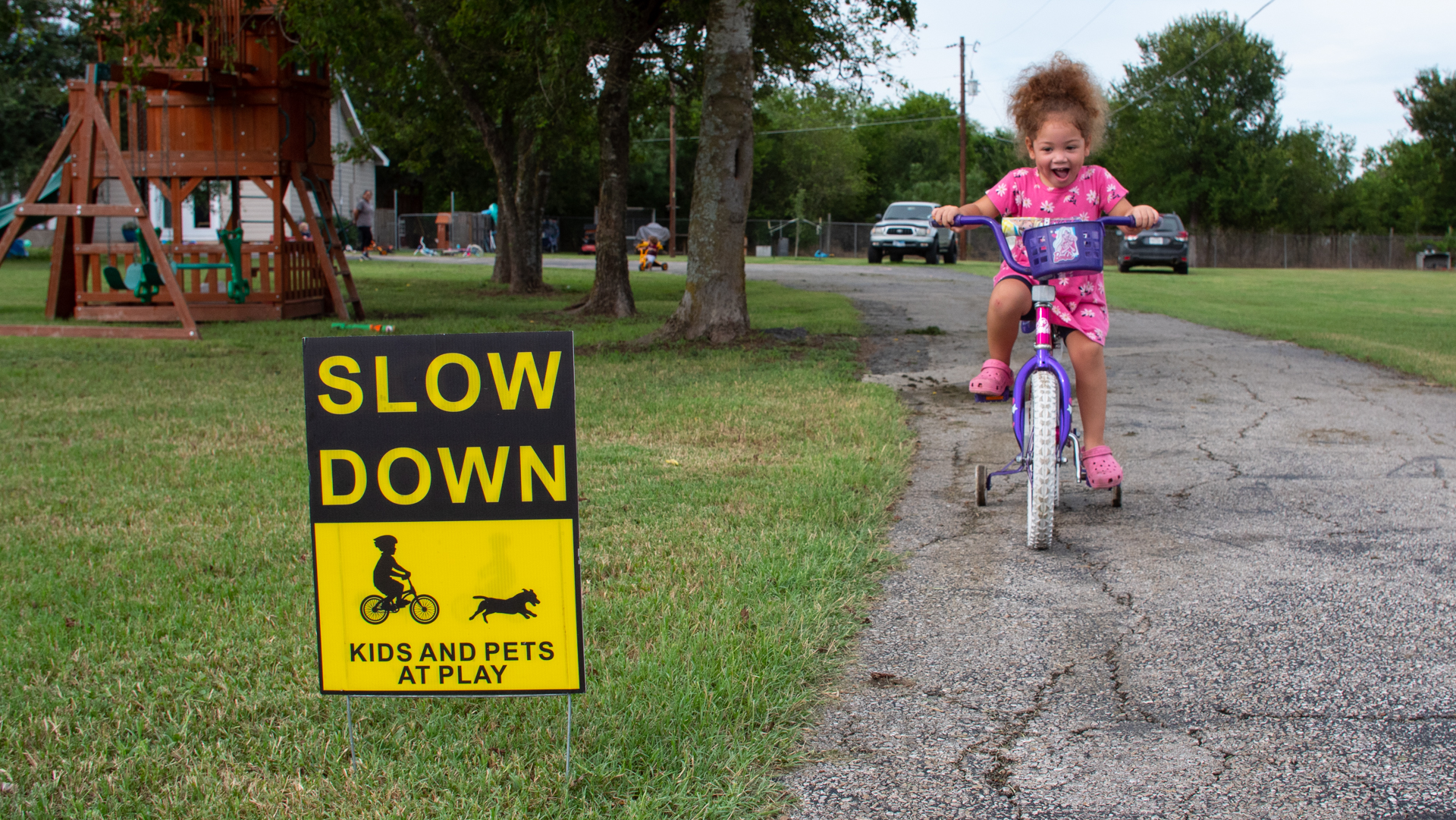
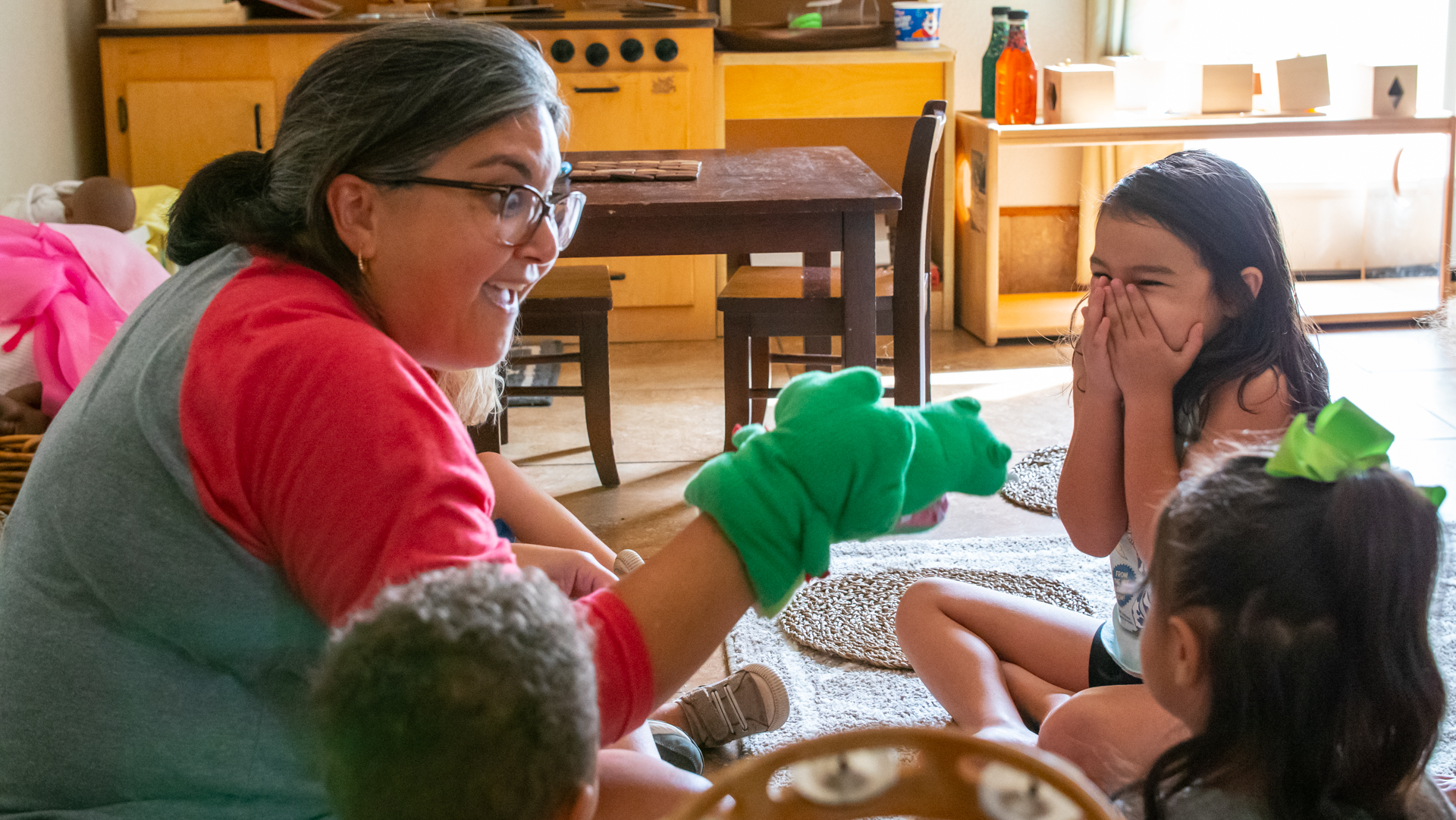
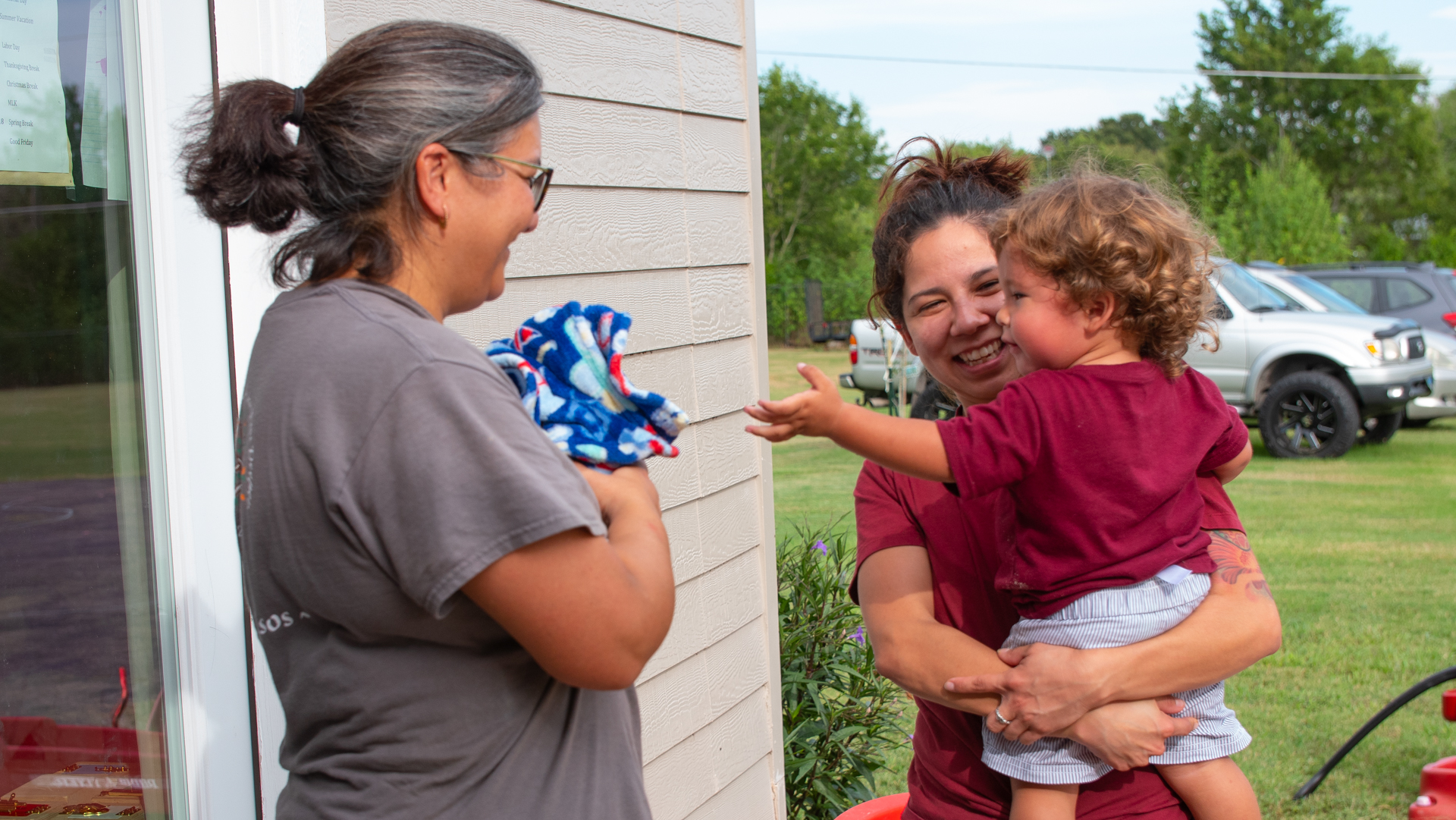





Contact Us
Email us at news@klru.org